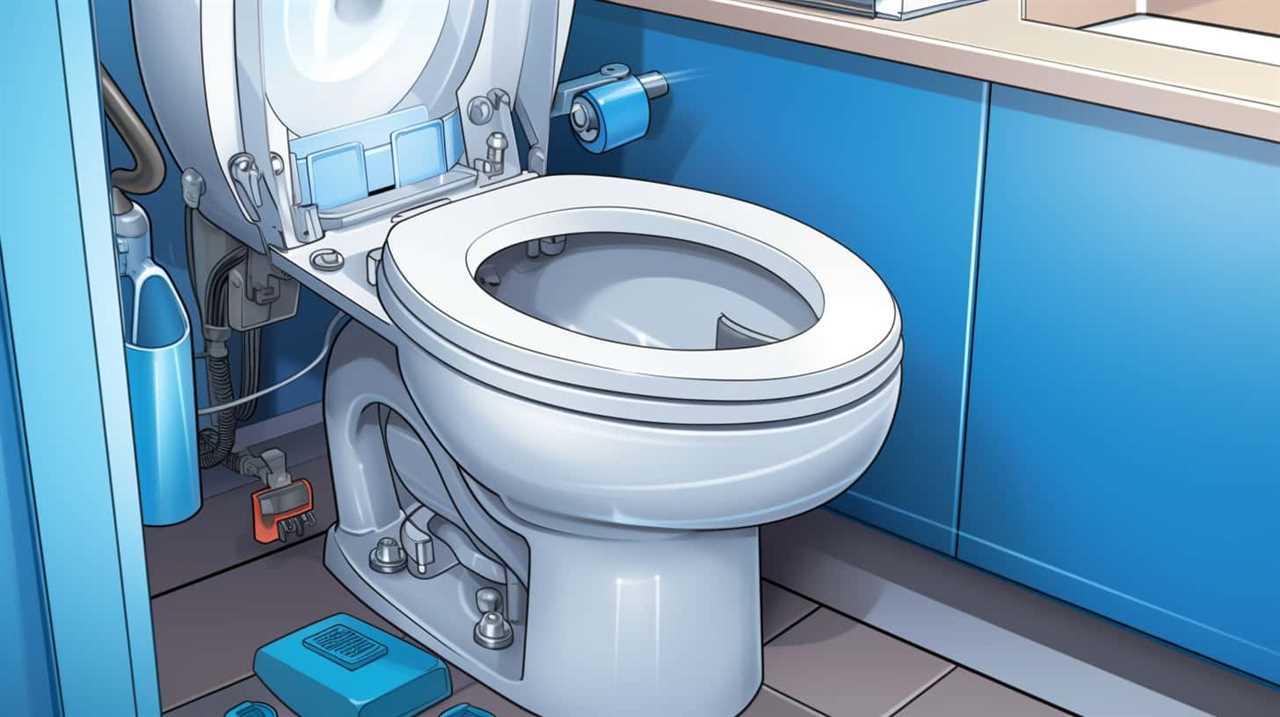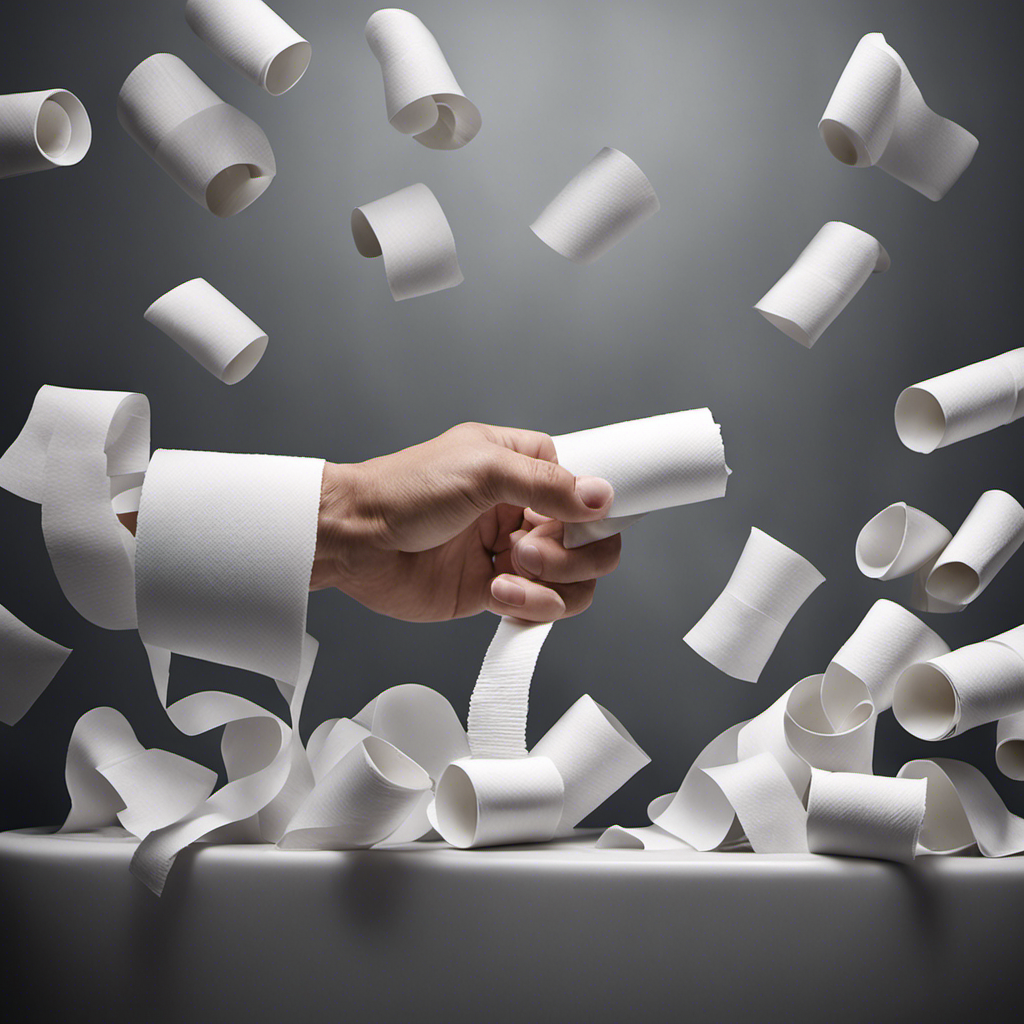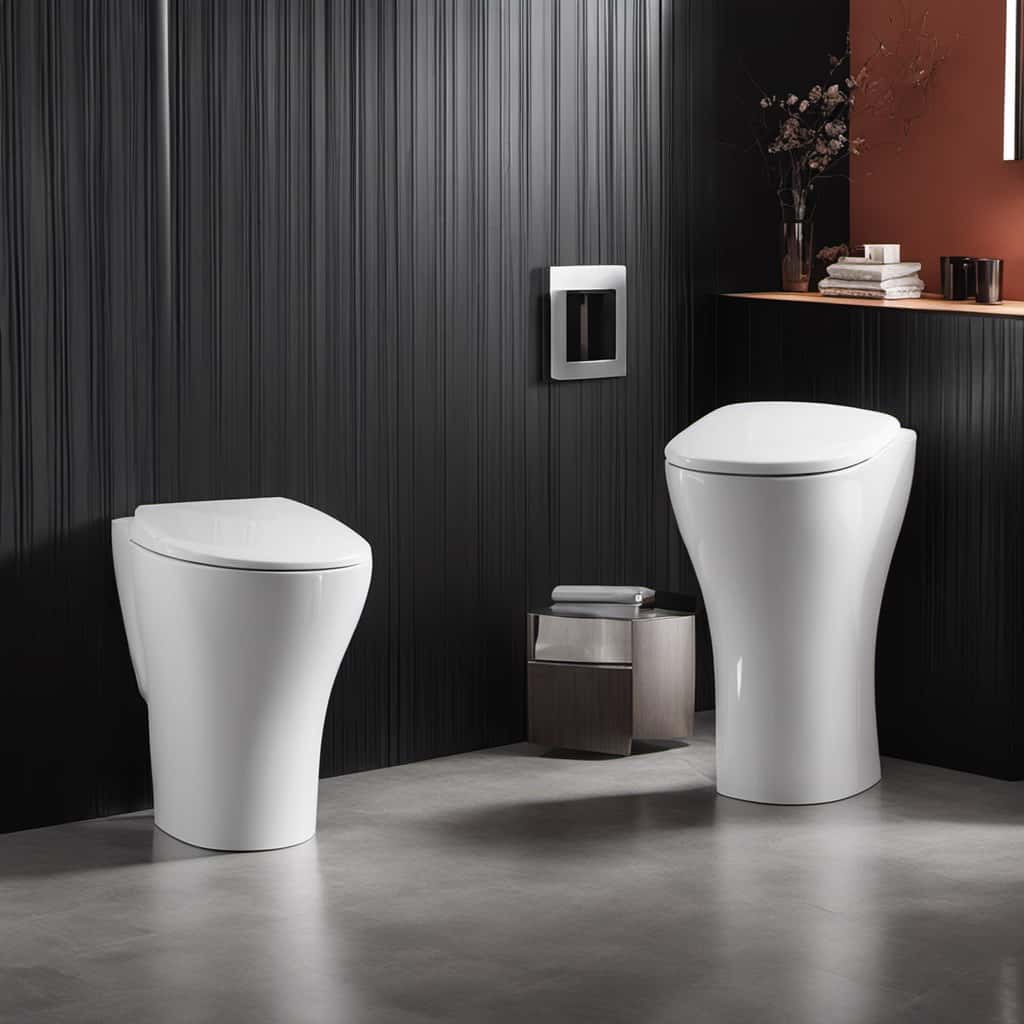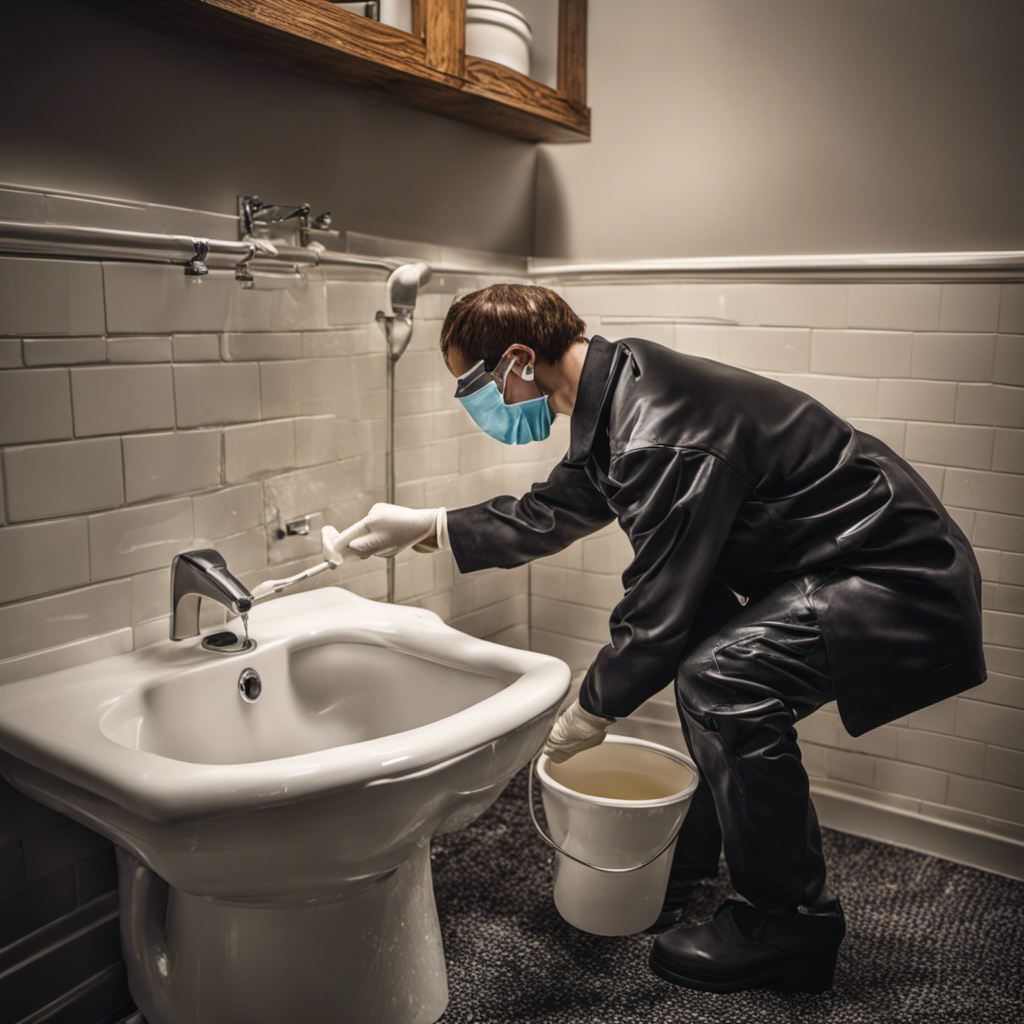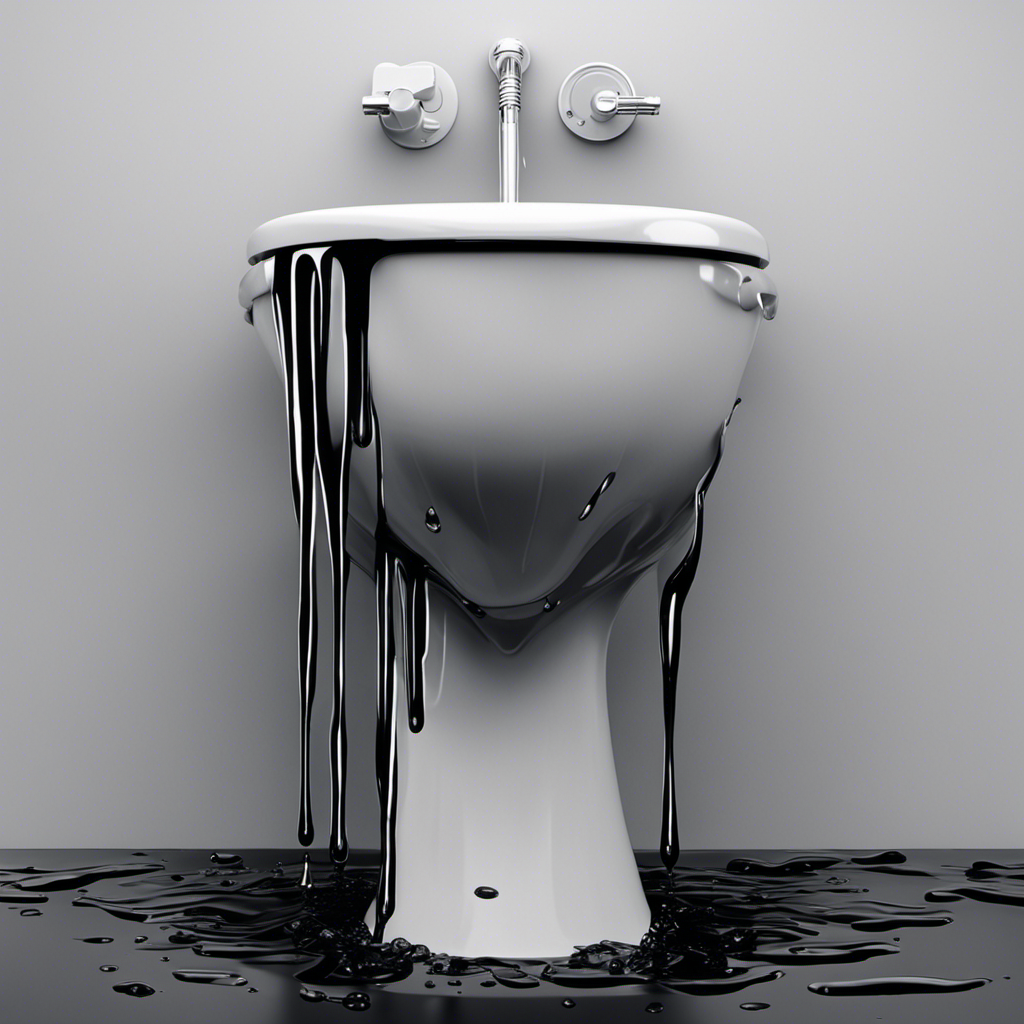We all know that the toilet is a magical place where things disappear with a simple flush. But here’s the thing, my friends: not everything should be sent down that porcelain kingdom. Oh no.
In fact, there are some items that can cause serious damage to our plumbing and the environment.
So, let’s dive into the depths of toilet wisdom and find out exactly what we should not, I repeat, should not flush in the toilet.
Key Takeaways
- Non-biodegradable items such as plastic waste, disposable diapers, wrappers, bottles, and packaging should not be flushed as they can cause blockages in the sewage system and harm marine life.
- Personal hygiene products like tampons, pads, diapers, wipes, and condoms should not be flushed as they can lead to plumbing system blockages and backups.
- Medications and chemicals should not be flushed as they can contaminate water sources and harm aquatic life. They should be properly disposed of at local pharmacies or waste management facilities.
- Oils, grease, fat, paper towels, and wet wipes should not be flushed as they can cause plumbing system damage, contribute to pollution, and harm the environment. Proper disposal methods should be followed to prevent these issues.
Non-Biodegradable Items
When it comes to non-biodegradable items, we need to be mindful of what we flush down the toilet. Plastic waste and disposable diapers are two common examples that should never be flushed.
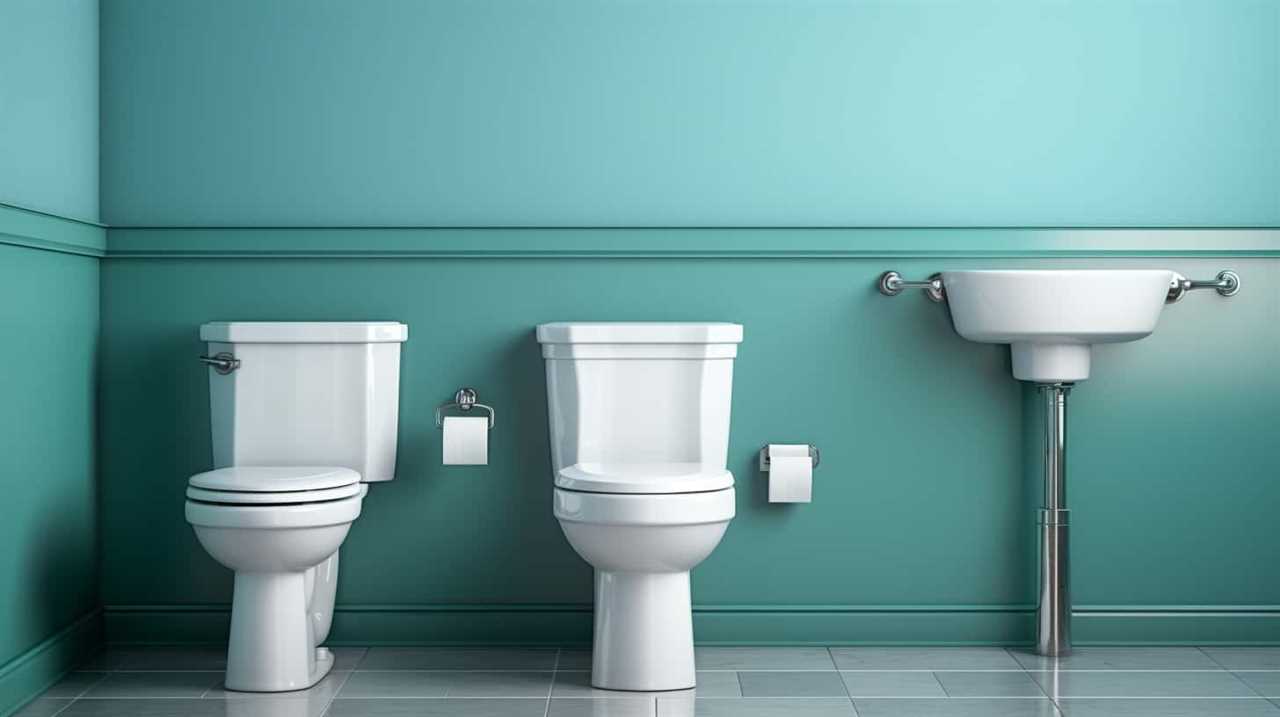
Plastic waste, such as wrappers, bottles, or packaging, can clog pipes and cause blockages in the sewage system. These items aren’t designed to break down in water and can lead to costly repairs.
Disposable diapers, although convenient, are made from materials that don’t biodegrade easily. Flushing them can lead to significant environmental problems, as they can end up in water bodies, harming marine life and polluting the ecosystem.
It’s crucial to dispose of these items properly in designated waste bins to prevent negative impacts on our plumbing systems and the environment as a whole.
Personal Hygiene Products
We should not flush personal hygiene products down the toilet. Flushing these products can cause blockages in the plumbing system, leading to costly repairs. Additionally, these products can have a detrimental impact on the environment. Proper disposal methods for personal hygiene products include throwing them in the trash or using designated disposal bins. It is important to remember that even if a product is labeled as "flushable," it does not mean it should be flushed. Flushing personal hygiene products can contribute to clogged sewer lines and sewage backups. To emphasize this point, consider the following table:

| Personal Hygiene Products |
|---|
| Tampons |
| Pads |
| Diapers |
| Wipes |
| Condoms |
Medications and Chemicals
In an article titled ‘What Should You Not Flush in the Toilet’, it’s important to address the issue of medications and chemicals that shouldn’t be flushed. Proper disposal of these substances is crucial to minimize their environmental impact and protect our water resources.
Here are three items that should never be flushed down the toilet:
- Medications: Flushing unused or expired medications can contaminate water sources, harming aquatic life and potentially affecting human health. Instead, take them to a local pharmacy or participating collection site for safe disposal.
- Household chemicals: Cleaning products, solvents, and pesticides should never be flushed as they can disrupt wastewater treatment processes and pollute rivers and lakes. Check with your local waste management facility for proper disposal methods.
- Personal care products containing chemicals: Items like tampons, diapers, and wet wipes shouldn’t be flushed, as they can cause blockages in sewer systems and contribute to pollution. Dispose of them in the trash instead.
Oils, Grease, and Fat
To prevent plumbing issues and protect the environment, it is important to properly dispose of oils, grease, and fat. These substances can cause significant damage to both your plumbing system and the environment when they are flushed down the toilet. When oils, grease, and fat enter the plumbing system, they can solidify and create blockages that can lead to costly repairs. Additionally, these substances can have a detrimental environmental impact when they enter sewage systems and waterways, causing pollution and harm to aquatic life. To help you understand the importance of proper disposal, here is a table outlining the environmental impact and potential plumbing problems caused by flushing oils, grease, and fat.
| Substance | Environmental Impact | Plumbing Problems |
|---|---|---|
| Oils | Can contaminate water sources and harm aquatic life | Clogs pipes and causes backups |
| Grease | Pollutes waterways and can be toxic to marine organisms | Solidifies in pipes and causes blockages |
| Fat | Contributes to water pollution and harms ecosystems | Accumulates in pipes and leads to sewer backups |
Paper Towels and Wet Wipes
Let’s talk about why flushing paper towels and wet wipes down the toilet is a bad idea. Not only does it have a negative environmental impact, but it can also cause serious plumbing issues.
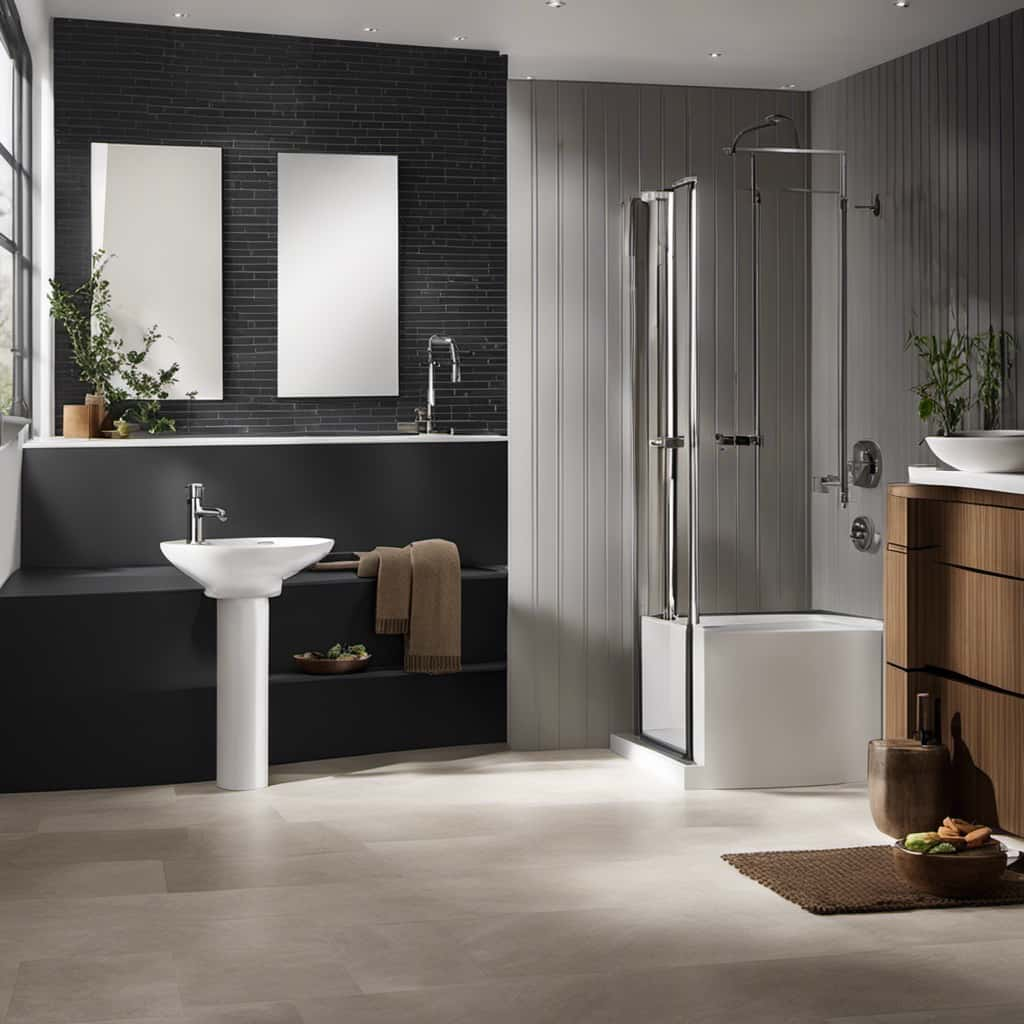
Here are three reasons why you should never flush paper towels and wet wipes down the toilet:
- Environmental Impact: Flushing paper towels and wet wipes contributes to clogged sewer systems and can lead to sewage spills. These spills can contaminate our water sources and harm aquatic life. Additionally, these materials don’t break down like toilet paper, leading to increased waste in landfills.
- Plumbing Issues: Paper towels and wet wipes aren’t designed to dissolve in water like toilet paper. Flushing them down the toilet can clog pipes and cause blockages, leading to expensive repairs and potential damage to your plumbing system.
- Costly Consequences: Dealing with plumbing issues caused by flushing paper towels and wet wipes can be a costly affair. Not only will you need to hire a professional plumber to fix the problem, but you may also have to deal with water damage and the inconvenience of not having a functioning toilet.
To avoid these problems, dispose of paper towels and wet wipes in the trash instead of flushing them down the toilet.
Frequently Asked Questions
Can I Flush Non-Biodegradable Items Down the Toilet if They Are Small Enough?
We should never flush non-biodegradable items down the toilet, even if they are small. Doing so can cause potential plumbing issues such as clogs and blockages. It’s important to dispose of these items properly.
Why Can’t I Flush Personal Hygiene Products Down the Toilet?
Flushing personal hygiene products can have a negative environmental impact. It’s important not to flush them because they can clog pipes and sewage systems. Instead, dispose of them in the trash to avoid potential problems.

Is It Safe to Flush Medications and Chemicals Down the Toilet?
Flushing expired medications and chemicals down the toilet is not safe. Proper disposal is essential to protect both our environment and our health. Let’s explore the correct ways to dispose of these items.
Can Small Amounts of Oil, Grease, or Fat Be Safely Flushed Down the Toilet?
Flushing oils and chemicals can have a negative impact on the environment and sewage systems. It is important to avoid flushing non-biodegradable items to prevent clogs and contamination.
What Is the Difference Between Flushing Paper Towels and Wet Wipes and Flushing Toilet Paper?
Flushing paper towels and wet wipes may seem similar to flushing toilet paper, but the difference lies in their environmental impact. Non-biodegradable items like these can clog pipes and harm marine life. It’s best to dispose of them properly.
Conclusion
In conclusion, when it comes to flushing items down the toilet, it’s crucial to remember that not everything is meant to go down the drain.

Non-biodegradable items, personal hygiene products, medications and chemicals, oils, grease, fat, and paper towels and wet wipes should never be flushed. These items can cause blockages in the plumbing system and harm the environment.
So, let’s be mindful of what we flush, and keep our toilets and our planet healthy and happy.
